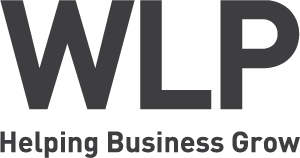Could category management be the missing piece in your toolkit to deliver on your objectives?
Read on, or contact David now to arrange a conversation to find out how he can help your business work smarter with effective category management.
Get your business working smarter for you
Your business is under constant pressure to improve productivity, reduce costs, deliver improved returns, and not forgetting actually driving growth… and all of this whilst having to out-perform competitors, and to satisfy consumers and customers. Your product portfolios and pricing strategies are under constant pressure to adapt to meet ever-evolving consumer needs. Well executed category management is crucial in keeping ahead.
By focussing on optimising your product offerings, managing your pricing structures, and crafting data-driven promotional strategies, you can significantly enhance the profitability and market presence of your business.
Effective category management can bring you additional benefits in optimising stock holding, inventory management and cash flow – all key factors that influence financial health and operational efficiency.
Understanding unlocks everything
Understanding your customers and consumers is the cornerstone of any successful business strategy. Using category management, product portfolio optimisation involves tailoring your product or service range to meet the specific needs and desires of your target market.
This approach is more than just knowing what products sell; it’s about understanding why they sell and aligning your offerings to maximise customer satisfaction. For SMEs, this usually means focusing resources on products that resonate most with customers. By using true customer insights to guide decisions, businesses can avoid the pitfall of offering too many underperforming products. Instead, they can invest in what truly matters – delivering value to their customers. This not only drives sales but also fosters brand loyalty.
A well-optimised product portfolio will streamline operations, reduce inventory costs, and improve overall business efficiency.
Look after your Range and it will look after you
Range management is essential for maintaining a balanced product mix that optimises profitability while ensuring efficient inventory management. For SMEs, having too broad a range can dilute focus and increase operational complexity, while too narrow a range can limit market reach.
Effective range management involves carefully selecting and curating products based on profitability, customer demand, and market trends. By analysing which products or services contribute most to the bottom line, businesses can make informed decisions about where to expand or contract their range.
This strategic approach ensures that resources are allocated to the most profitable areas, maximising return on investment.
Pricing is a tool for success
Pricing is a powerful tool in category management. For SMEs, establishing structured pricing corridors – predefined pricing ranges for products or services – can be the difference between thriving and merely surviving in a competitive market.
A structured pricing strategy helps maintain consistency, protect profit margins, and avoid the pitfalls of discounting wars that can erode brand value. By setting clear pricing corridors, businesses can manage customer expectations and enhance perceived value. This structured approach also allows for more effective promotional strategies, ensuring that discounts or special offers are aligned with overall business objectives rather than arbitrary decisions.
Pricing corridors also provide the flexibility to adjust prices based on market conditions without straying from the core value proposition, ultimately optimising both sales and profitability.
Get your cash driving growth
One of the sometimes overlooked benefits of effective category management is its impact on inventory management and cash flow. By optimising the product range and managing stock levels strategically, businesses can significantly reduce the costs associated with excess inventory, such as storage, insurance, and depreciation. This in turn, frees up cash that can be reinvested into more profitable areas of the business.
With a well-managed product portfolio and efficient inventory control, businesses can avoid the risks both of overstocking which ties up capital, and understocking which can lead to missed sales opportunities. This balance ensures a healthier cash flow, allowing businesses to operate more smoothly and invest in growth opportunities as they arise.
Contact David today to discuss how focusing on category management in your business could help you drive growth and profitability.
